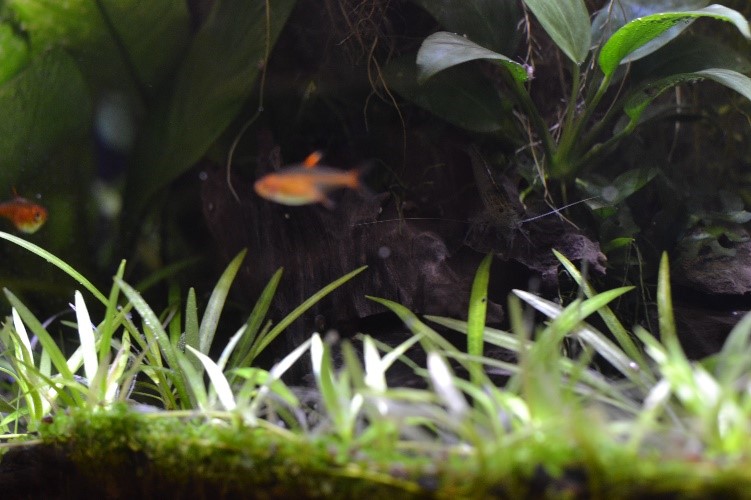
Life in Pandemic – Living in liminal spaces
Edgar French, Spiritual Care coordinator at the University of Manitoba, muses about this transition period in our lives, and discusses the potential and hidden opportunities awaiting discovery.
It has been said that in life, change is the only true constant. We are in a constant state of flux in all ways, from the microscopic – in how our bodies regenerate themselves on the cellular level, to the experiential – discovering suddenly, after years of avoidance, that you really like cilantro! Most of life’s changes occur over long periods that we hardly notice them (like my waist enhancement). At other times, however, we are brutally thrust into change without any warning.
The process of change can also linger for a very long time, making the experience even more unbearable. Author and theologian Richard Rohr defines it as entering and inhabiting liminal space.
Liminal spaces are in-between spaces where our former ways of being are challenged or changed. Often they are hard spaces to live in, spaces of disorientation and discomfort, perhaps like hanging in mid-air. These days we’re all inhabiting liminal space in very concrete ways. We find ourselves cut off from our campus and the routines that defined our semester as students, staff and faculty. We’re confined to our homes, our rooms in residence, cut off from experiences and people we mostly took for granted. Life in pandemic is truly liminal.
Liminal spaces have a way of overturning the daily rhythms and practices that give our lives an element of cohesion, manageability and meaning. They upend those rituals in life where we derive comfort. Life in pandemic now means I don’t commute on the bus anymore and spend an hour, each weekday, to be in thought and preparation, usually meditating/praying for my day. It means I don’t mingle with my co-workers and share life on life over lunch or coffee-break. And it means I don’t get to greet students at my office door and be physically present to them. All of these in some way provided a level of comfort to the way my days flowed.
While liminal space might put an end or infringe upon our rituals and rhythms, they can also provide an opportunity to be more intentional, creative and develop new rituals. There is a healing ingenuity that can arise from fearful and anxious times as the ones we are living in. Psychologist Miriam Greenspan writes, “If fear is only telling you to save your own skin, there’s not much hope for us. But the fact is that in conscious fear, there is potentially revolutionary power of compassion and connection that can be mobilized en masse. This is the power of fear. Our collective fear, which is intelligent, is telling us now: Find new ways to keep this global village safe…. Learn the ways of peace. Find a new ceremony of safety so that not just you and I but all of us can live together without fear” (Miriam Greenspan, Healing through the Dark Emotions The Wisdom of Grief, Fear, and Despair). Our university village is doing just that! I think of the many creative virtual gatherings that have recently provided strength and encouragement, celebration and hope, in trying times like these. These gatherings have celebrated student achievements like the virtual graduation Powwow. They have provided spaces to grieve and care for one another, in the form of a virtual care circle, in the wake of recent and ongoing racial discrimination and injustices perpetrated against members of the BIPOC community. I’ve had the opportunity of co-facilitating an interfaith gathering, represented by a wide groups of diverse students and staff, to find a renewed sense of connection and solidarity especially at a time when our sense of isolation is heightened (https://youtu.be/F_4NgWkIx_c).
Life in liminality offers us the opportunity to be intentional about our rituals, our needs, but also the needs of each other. What new and life-giving rituals have arisen for you in life in pandemic? What new daily practices and rhythms have you been intent on committing to, never had the chance, and finally now you can?
As difficult and discouraging as times of liminality truly are, they also harbor promise and opportunity. All losses, all crises, all changes do. It is the gift of change. I’m reminded of the Greek myth of Pandora’s Box. When all the ails of the world came streaming out of the box, Pandora looked into it and discovered the small gift meant to counter the unleashed sufferings of life – hope. Sometimes, to discover these gifts, it helps to have someone to talk to, to reflect and wonder with, to laugh and yes, to cry and grieve with. Spiritual Care can help you cultivate a sense of hope and discover the opportunities and promises hidden away in liminal spaces. Be well friends.
You can contact Edgar French, UM’s spiritual care coordinator at edgar.french@umanitoba.ca, or 204-298-2467.






